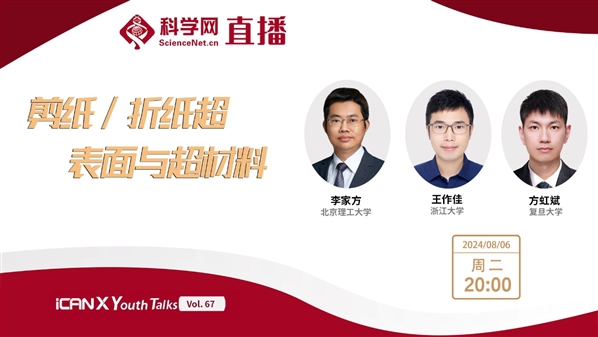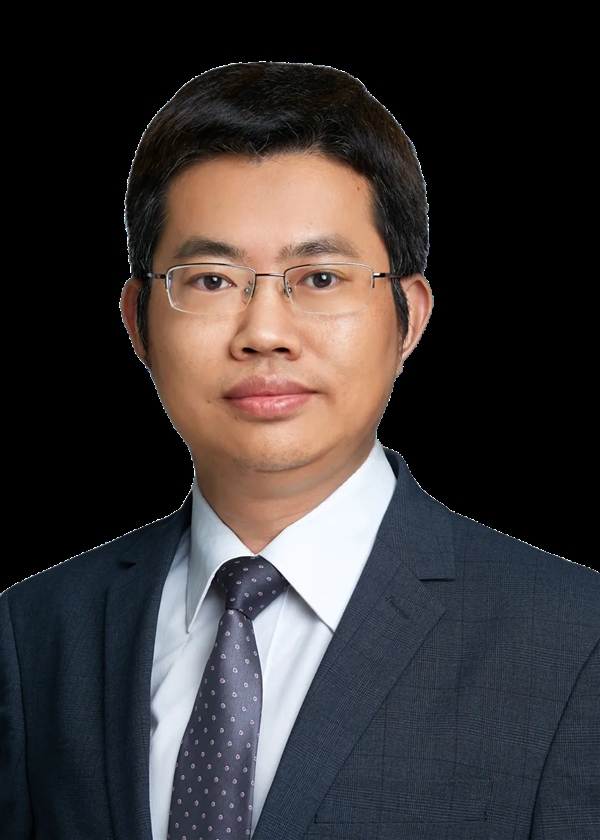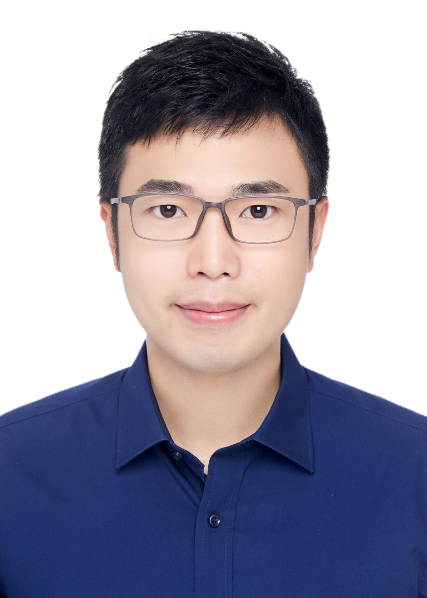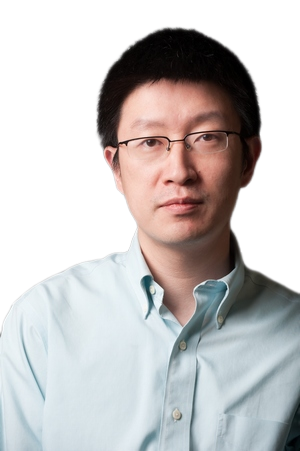|
|
|
|
|
北京理工大学和浙江大学等三位专家讲述剪纸/折纸超表面与超材料 |
|
|

直播时间:2024年8月6日(周二)20:00—22:00
直播平台

科学网APP
(科学网微博直播间链接)
https://weibo.com/l/wblive/p/show/1022:2321325064382328471600

科学网微博

科学网视频号
【直播简介】
北京时间8月6日晚八点,iCANX Youth Talks第六十七期邀请到了北京理工大学李家方、 浙江大学王作佳、复旦大学方虹斌三位教授主讲,天津大学马家耀、北京大学张海霞担任研讨嘉宾,香港大学方绚莱教授担任主持人,期待你一起加入这场知识盛宴。
【嘉宾介绍】

李家方
北京理工大学
纳米剪纸形变制造及调控
[ABSTRACT]
High-precision three-dimensional nanofabrication technology is critical for the development of contemporary optoelectronics and micro/nano-photonics. Inspired by a traditional Chinese paper-cut named “pulling flower”, here we report an advanced deformable micro-/nano-fabrication technique named nano-kirigami. Specifically, this method utilized focused ion beam (FIB) instead of knives/scissors to cut a precise pattern in a free-standing gold nanofilm, and used the same FIB instead of hands to gradually “pull” the nanopattern into a complex 3D shape with feature size of <50 nm. The resulted unprecedented 3D nanogeometries could enable exceptional and flexible functionalities in optical, mechanical, thermal, acoustic, electric, magnetic, and biological areas. Reconfigurable metasurfaces operating at optical wavelengths, as an example, will be introduced based on the deformable designs. Nano-electromechanical reconfiguration is implemented via attractive electrostatic forces between the top gold nanopatterns and bottom silicon substrate. Moreover, metallic rotors with size of ~10 μm are freely manipulated with controllable speed and direction using an advanced optoelectronic tweezers technique. The results could provide new physical mechanisms and technological approaches for the emerging areas of nanophotonic applications, micro-/nano-optoelectromechanical systems, optoelectronic micro/nano-machinery, etc.
纳米精度的三维制造技术是当代光电子学和微纳光子学发展的重要基础。传统的三维微纳制造技术,如自下而上(bottom-up)、自下而上(top-down)、自组装等方法,遵循的是一种线性序列,通常采用逐层叠加二维平面来构建三维空间,结构的复杂度、分辨率和制备成本很难同时兼顾。我们借鉴传统剪纸形变原理,结合现代纳米加工工艺,采用“二维刻线+三维形变自成型”方法,发展出纳米尺度的片上、原位、立体剪纸形变加工技术。该技术既不同于增材制造,也不同于减材制造,突破了传统自下而上、自上而下、自组装等纳米加工方法在几何形貌方面的局限,成为一种快速、新型的三维微纳形变制造方法,为微纳光子学的发展提供了一种新的技术途径。本报告将介绍研究团队在纳米剪纸微纳形变制造技术及光电调控应用方面的研究进展,包括机电可重构超表面及微型转子光电镊自由操控。
[BIOGRAPHY]
Prof. Jiafang Li is the Distinguished Professor at School of Physics, Beijing Institute of Technology, where he leads the “Advanced Nanofabrication and Micro-/Nano-photonics” Group. Prof. Li graduated from Nankai University in 2005 and obtained his PhD degree in 2009 from Swinburne University of Technology, Australia. He worked at Institute of Physics, Chinese Academy of Sciences from 2009 to 2018, visited MIT as a visiting scholar in 2017, and took the Professorship at Beijing Institute of Technology in 2018. His research activities are focused on 3D micro-/nanofabrication and nanophotonics, especially on the development of the innovative 3D nano-kirigami nanofabrication technique, the creative reconfiguration methodology for Nano-Opto-Electro-Mechanical Systems (NOEMS), and the exceptional manipulation capability of nano-kirigami microrotors with optoelectronic tweezers. Prof. Li has published more than 100 peer reviewed papers, including Sci. Adv., Nat. Commun., Light, Adv. Mater., Nano Lett., etc. He was selected as the National Top Young Talents in 2020 and awarded the National Funds for Distinguished Young Scientists in 2023.
李家方教授是北京理工大学物理学院特聘教授,在该学院领导“先进纳米制造与微纳光子学”研究团队。李教授2002年与2005年分别于南开大学获学士、硕士学位,2009年于澳大利亚斯威本科技大学获博士学位,2009-2018年在中国科学院物理研究所参加工作,2017年访问美国麻省理工学院,2018年调入北京理工大学。研究聚焦于三维纳米制造技术,以及微纳尺度下光与物质的相互作用。针对三维纳米制造技术难题,与合作团队另辟蹊径,2018年在国际上首次实现纳米剪纸三维微纳制造技术,2021年提出纳米形变光机电动态调控新机制,2024年率先实现纳米剪纸微型转子的光电镊自由操控。相关工作在Sci. Adv., Nat. Commun., Light, Adv. Mater., Nano Lett.等顶级期刊上发表论文100余篇,被中央电视台CCTV1、CCTV13、新华网、Science Daily、MIT News等专门报导。

王作佳
浙江大学
可控形变与电磁色散定制的折纸超材料
[ABSTRACT]
The macroscopic responses of electromagnetic metamaterials are usually subject to geometric constraints, such as periodic size requirements for characteristic frequencies, lattice symmetry requirements for anisotropy, and aperture limitations for antenna radiation efficiency. Origami is a technology that folds two-dimensional planes into complex three-dimensional configurations, providing a new platform to break the geometric constraints of electromagnetic metamaterials. In this talk, I will introduce origami-based metamaterials with controllable deformation and the methods on dispersion engineering. Origami metamaterials are implemented by arranging specific electromagnetic meta-atoms on origami patterns with designed creases. Manipulation on period, symmetry and aperture size is achieved through stretching or compression, thereby shaping the electromagnetic mode coupling among meta-atoms and providing customizable electromagnetic dispersion. We demonstrate the versatile dispersion engineering in origami metamaterials, including chiral switching, nonlocal dispersion, hyperbolic plasmonic waveguides, directional radiation, low-frequency plasmonic particles, etc. We also demonstrate the potential of origami metamaterials in highly elastic stretchable radiofrequency circuits. Through these examples, we aim to create opportunities for future smart and transformable electromagnetic materials.
人工电磁材料的宏观响应通常受到几何约束,例如特征频率的周期尺寸要求、各向异性的晶格对称性要求、天线辐射效率的口径限制等。折纸是一种将二维平面折叠成复杂三维构型的技术,为破除人工电磁材料的几何形状约束提供了新平台。在这次报告中,我将介绍基于折纸技术的可变形电磁超材料及其色散设计方法。折纸超材料是通过在折纸图案上排列特定的人工电磁原子,设计折痕来实现特定变形。通过拉伸或压缩实现周期、对称性和口径变换,进而改变人工原子的电磁模式耦合,实现电磁色散的可控定制。我们通过设计展示了折纸超材料的色散调控灵活性,包括手性切换、非局域色散、双曲激元导波、定向辐射、低频等离激元颗粒等。我们还展示了折纸超材料在高弹性可拉伸射频电路中的潜力。通过这些例子,我们旨在为灵巧多变智能电磁材料创造新的研究前景。
[BIOGRAPHY]
Dr. Zuojia Wang is a Research Professor of Hundred Talents Program at College of Information Science and Electronic Engineering, Zhejiang University. He was selected into the National Natural Science Foundation of China Outstanding Youth Project. He received the B.E. degree in Electronic and Information Science in 2009, and the Ph.D. degree in Electronics Science and Technology in 2016, both from Zhejiang University, Hangzhou, China. From 2014 to 2016, he was a visiting scholar in Department of Mechanical & Industrial Engineering, Northeastern University, Boston. He has been an Associate Professor in 2017-2019, and Professor in 2019-2020, in School of Information Science and Engineering, Shandong University, China. In 2020, he joined Zhejiang University as a Research Professor of Hundred Talents Program. His current research interests include electromagnetics and metamaterials. He is the coauthor of more than 70 international refereed journal papers, including Science Advances、Nature Communications、Physical Review Letters、Advanced Materials、Laser & Photonics Reviews、IEEE Transactions on Antennas and Propagation, etc. He is the youth editorial board member of Fundamental Research. He was awarded by the first prize of Zhejiang Province Natural Science Award and the Outstanding Doctoral Thesis Award of Chinese Institute of Electronics.
王作佳博士是浙江大学浙江大学信息与电子工程学院研究员。2009年本科毕业于浙江大学信息与电子工程学系,2016年获浙江大学电子科学与技术博士学位。2017年获聘山东大学副研究员,2019年晋升为教授,2020年入职浙江大学信息与电子工程学院。在2014至2016年期间在美国东北大学访问研究。主要研究方向包括电磁波理论和人工电磁媒质,在Science Advances、Nature Communications、Physical Review Letters、Advanced Materials、Laser & Photonics Reviews、IEEE Transactions on Antennas and Propagation等国际期刊上发表70余篇SCI论文。他是《Fundamental Research》期刊的青年编委,曾获得浙江省自然科学一等奖、中国电子学会优秀博士论文奖。

方虹斌
复旦大学
多稳态折纸超材料助力机械计算
[ABSTRACT]
Multi-stable origami metamaterials have great potential for applications in many fields. By establishing the mapping relationship between multistable states and Boolean logic, origami metamaterials provide a new inspiration for the development of next-generation intelligent metamaterials with physical computation capability. Currently, the design method of multistable origami metamaterials is relatively homogeneous, the mechanism of multistable transition is not well understood, and the construction of mechanical logic gate networks based on modern electronic computation is quite complicated, which poses a number of challenges to the implementation of advanced mechanical computation. To solve these problems, we propose a digital method for synthesizing and reconfiguring multistable origami metamaterials based on basic modules, which gives a new strategy for analyzing and programming the mechanical properties of metamaterials. Taking the multistable origami metamaterials as a platform, we reveal the mechanism of quasi-static and dynamic stable state transitions, and realize accurate prediction and effective editing of the multistable transition paths of origami metamaterials. Based on this, we propose a new framework of cellular automata-inspired reservoir computation, which realizes complex logic computation tasks with finite-scale origami metamaterials and single actuation, thus solving the difficulties of conventional mechanical logic computing architectures that are demanding in terms of network scale, material fabrication, and signal propagation. Furthermore, we validate the effectiveness and flexibility of the proposed computational framework through tasks such as simple and compound logic gates, digit and handwriting image recognition, and sequential memory. This research provides a novel solution for the development of next-generation intelligent metamaterials and autonomous robots with advanced computational capabilities, and will have far-reaching impacts in a variety of fields, including materials science, computational science, and mechanical intelligence.
多稳态折纸超材料在许多领域具有巨大的应用潜力。通过建立多稳态与布尔逻辑的映射关系,折纸超材料为新一代具备物理计算能力的智能超材料的开发提供了新灵感。目前,多稳态折纸超材料的设计方法相对单一,对多稳态切换的机理了解尚不深入,构建基于现代电子计算的逻辑门网络也相当复杂,实现高级机械计算面临了诸多挑战。为解决这些问题,我们提出了基于基本模块合成和重构多稳态折纸超材料的数字化方法,给出了分析和编程超材料力学特性的新策略。以多稳态折纸超材料为平台,我们揭示了准静态和动态稳定构型切换的力学机制,实现了对折纸超材料多稳态构型切换路径的准确预测和有效编辑。以此为基础,我们提出了元胞自动机启发的蓄水池计算新框架,实现了有限规模折纸超材料和单个作动条件下的复杂逻辑计算任务,从而解决了传统机械逻辑运算架构对网络规模、材料制造和信号传播要求苛刻的难题。进一步地,我们通过简单和复合逻辑门、数字和手写图像识别、时序记忆等任务,验证了所提出计算框架的有效性和灵活性。本研究为开发具有先进计算能力的新一代智能超材料和自主机器人提供了全新方案,并将在材料科学、计算科学、机械智能等多个领域产生深远影响。[BIOGRAPHY]
Dr. Hongbin Fang is currently a Professor with the Institute of AI and Robotics, Fudan University, Shanghai, China. He received the B.E. and Ph.D. degree in mechanics from Tongji University, Shanghai, China, in 2008 and 2015, respectively. During 2012 and 2014, he was a joint Ph.D. student in mechanical engineering at the University of Michigan, Ann Arbor, MI, USA. He was a Postdoctoral Researcher with the Department of Mechanical Engineering, University of Michigan, Ann Arbor, MI, USA, from 2015 to 2017, and the Department of Mechanical Engineering, the Hong Kong Polytechnic University, Hong Kong, China, from 2017 to 2018. In 2018, he joined the Institute of AI & Robotics, Fudan University, Shanghai, China as an Associate Professor (Young Researcher), and has been a Professor since 2022. His research interests include bio-inspired robots, origami mechanical metamaterials, mechanical intelligence, and multibody system dynamics and control. He has published more than 70 papers in leading journals, including Advanced Science, Advanced Materials, IEEE Transactions on Fuzzy Systems, Journal of the Mechanics and Physics of Solids, the International Journal of Robotics Research, etc. He was named in 2023 Stanford/Elsevier List of World’s Top 2% Scientists, and was awarded the 2022 Excellence Award of the Shanghai Society of Vibration Engineering, etc.
方虹斌,复旦大学智能机器人研究院副院长,教授、博士生导师, “智能机器人”国家重点研发计划项目首席科学家,上海市“科技创新行动计划”启明星。现任美国机械工程师协会(ASME)振动与噪声技术委员会(TCVS)委员,中国机械工程学会机器人分会委员,中国复合材料学会智能复合材料专业委员会委员,上海市力学学会动力学与控制专委会副主任;担任《Theoretical and Applied Mechanics Letters》和《动力学与控制学报》编委,《力学学报》和《固体力学学报》特邀青年编委。主要从事仿生移动机器人、折展编织机器人、折纸力学超材料、机械智能、非线性多体系统动力学与控制等方面的研究,在本领域权威学术期刊发表论文70余篇,包括《Advanced Science》、《Advanced Materials》、《IEEE Transactions on Fuzzy Systems》、《Journal of the Mechanics and Physics of Solids》、《The International Journal of Robotics Research》等Top期刊,授权/申请发明专利9项。作为负责人主持国家重点研发计划、国家自然科学基金项目、上海市基础研究特区等项目多项。入选全球前2%顶尖科学家榜单2023,曾获SPIE仿生学最佳论文一等奖,上海市振动工程学会英才奖等。
【主持人】

方绚莱
香港大学
【研讨嘉宾】

马家耀
天津大学

张海霞
北京大学
特别声明:本文转载仅仅是出于传播信息的需要,并不意味着代表本网站观点或证实其内容的真实性;如其他媒体、网站或个人从本网站转载使用,须保留本网站注明的“来源”,并自负版权等法律责任;作者如果不希望被转载或者联系转载稿费等事宜,请与我们接洽。